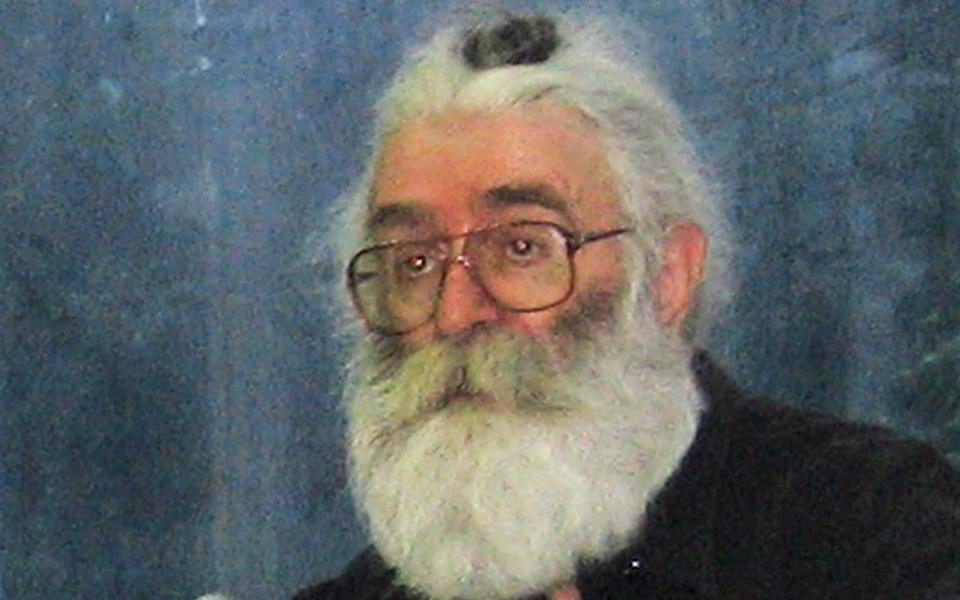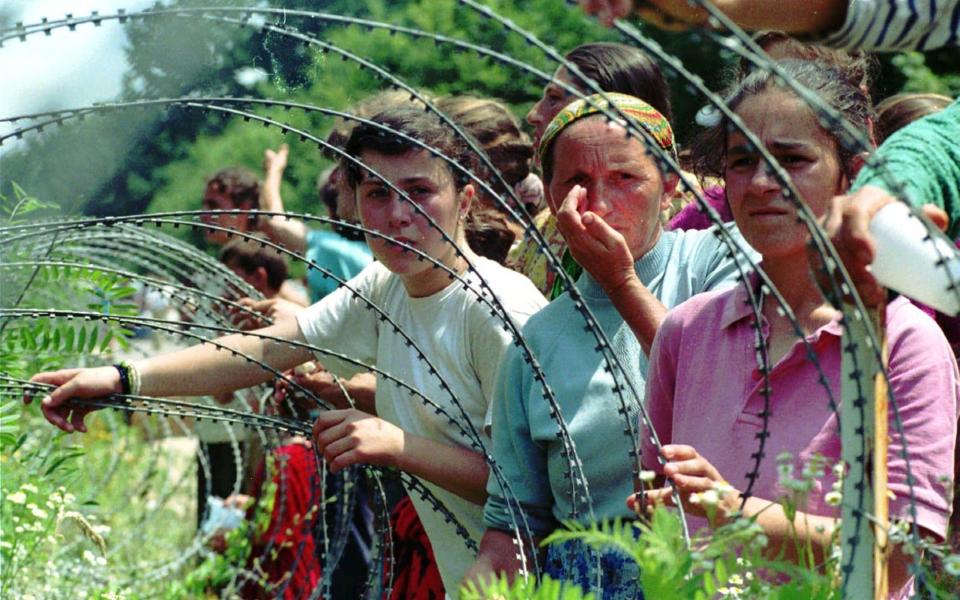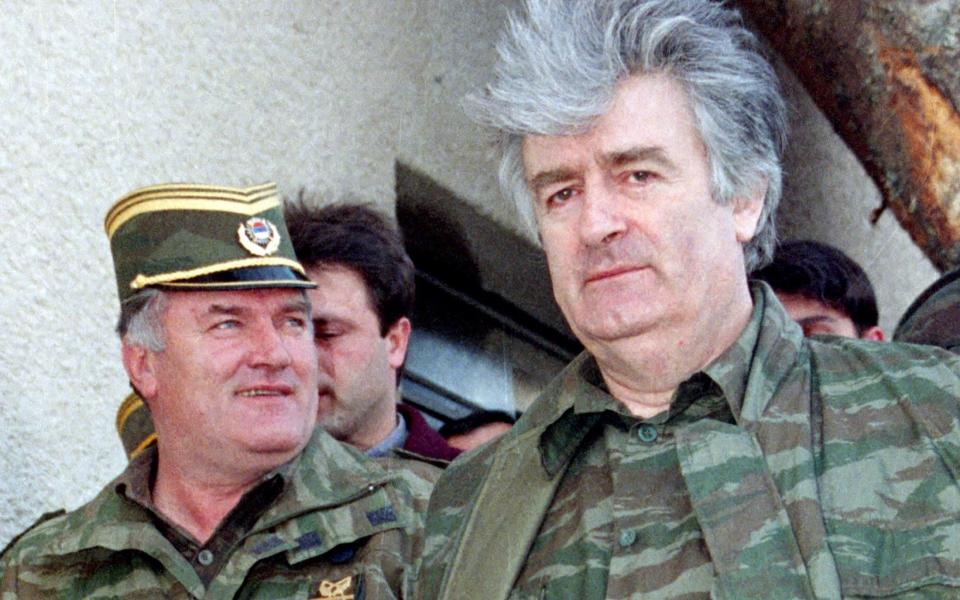Radovan Karadzic, the genocidal ‘Butcher of Bosnia’, to be transferred to British prison

Radovan Karadzic, the notorious Serbian warlord, is being transferred to a British jail to serve out the rest of his life sentence for genocide and crimes against humanity.
Karadzic, 75, will be held at a secret location in a high security prison to protect him from reprisal attacks. He was found guilty of war crimes including the massacre in 1995 of 8,000 Bosnian Muslim men and boys at Srebrenica in what is widely regarded as the worst atrocity committed on European soil since the end of the Second World war.
Dominic Raab, the Foreign Secretary, announced on Wednesday that the UK had agreed to detain Karadzic for the rest of his sentence. It is unclear if the Serbian warlord, who served as president of the Republika Srpska during the Bosnian War in the mid 1990s, will be consigned to die in a British prison.
In 2016, Karadzic was sentenced by the International Criminal Tribunal for the former Yugoslavia in The Hague to serve 40 years, which was later increased to life in jail.
Karadzic went on the run in 1996 at the end of the Bosnian war, evading capture for over a decade before he was finally arrested in 2008 in the Serbian capital Belgrade, where he had been working under an assumed name as an doctor of alternative medicine.

In a statement, Mr Raab said: "Radovan Karadzic is one of the few people to have been found guilty of genocide. He was responsible for the massacre of men, women and children at the Srebrenica genocide and helped prosecute the siege of Sarajevo with its remorseless attacks on civilians.
"We should take pride in the fact that, from UK support to secure his arrest, to the prison cell he now faces, Britain has supported the 30-year pursuit of justice for these heinous crimes."
The UN's International Residual Mechanism for Criminal Tribunals confirmed that it had asked Britain to "enforce the sentence of Karadzic".
It also requested that "all necessary measures" be taken "to facilitate Karadzic's transfer to the United Kingdom as expeditiously as possible".
However, no date has yet been given for when the transfer will take place.

Individuals convicted of crimes by tribunals in The Hague do not serve out their sentences in the UN detention facilities in the city, and have a deal with member states, who take them instead.
The Ministry of Justice is refusing to say where Karadzic – who became known as “the Butcher of Bosnia” – will be held. A spokesman said: "For security reasons it is not something we are going to comment on at this stage. We would not comment on how he is held or where he will be held."
Keeping Karadzic safe is likely to pose a major security headache for the prison service wherever he ends up. High security jails in the UK contain sizeable populations of jihadist terrorists and sympathisers and his transfer to the UK will make him a serious target.
Mr Raab was a legal adviser in Britain's embassy in the Hague between 2003 and 2006, and negotiated the 2004 deal that is being used to transfer Karadzic.
Speaking on Wednesday, Mr Raab said Britain had a "moral duty" to hold to account "the very worst perpetrators of the very worst crimes" and had done so since the Nuremberg trials held in the wake of the Second World War.
He told the BBC: "There are 15 other countries that take these prisoners. But actually if we want to deter these types of crime from happening, if we want to give justice to the many thousands of victims, I think it is right we do our bit."
The Hague found Karadzic responsible for the massacre of thousands of Muslim men and boys in just a few days after the town of Srebrenica was taken by Serbian forces on July 11, 1995.
The episode - labelled as genocide by two international courts - came at the end of a 1992-1995 war between Bosnia's Croats, Muslims and Serbs that claimed some 100,000 lives.

Karadzic and his military chief, Ratko Mladic, were among the last suspects put on trial by the UN tribunal in The Hague for the civil war.
Appeal judges in 2019 increased Karadzic's sentence, saying the initial jail term had underestimated the "sheer scale and systematic cruelty" of his crimes.
In 2013 Britain agreed to take Charles Taylor, the former Liberian warlord, after he lost his appeal against a 50-year sentence for war crimes and crimes against humanity before the UN's Special Court for Sierra Leone in The Hague.
Taylor is serving his term at Frankland maximum security prison just outside Durham in northeastern England after being convicted of fuelling civil conflict in neighbouring Sierra Leone.
In 2015, Taylor asked to be transferred to a jail in Rwanda but his request was blocked. He complained he was being held "effectively in isolation" because he was "too much of a target and too vulnerable" to be kept with other inmates in Frankland.
The UK was a signatory to the tribunal that dealt with war crimes that took place during the conflicts in the Balkans in the 1990s. The ad hoc UN court was located at the Hague in the Netherlands, the site of the International Criminal Court.
Karadzic has been kept in jail at the Hague since his sentencing.
A Whitehall source told The Telegraph: “This was the deal at the Hague - they would conduct the trials, but they wouldn’t hold the prisoners. That’s how Charles Taylor ended up here as well… It’s not going to be a minimum security prison.”
The Bosnian Serb war criminal is the fifth prisoner to be transferred to the UK under arrangements with The Hague, it is understood.

 Yahoo News
Yahoo News 